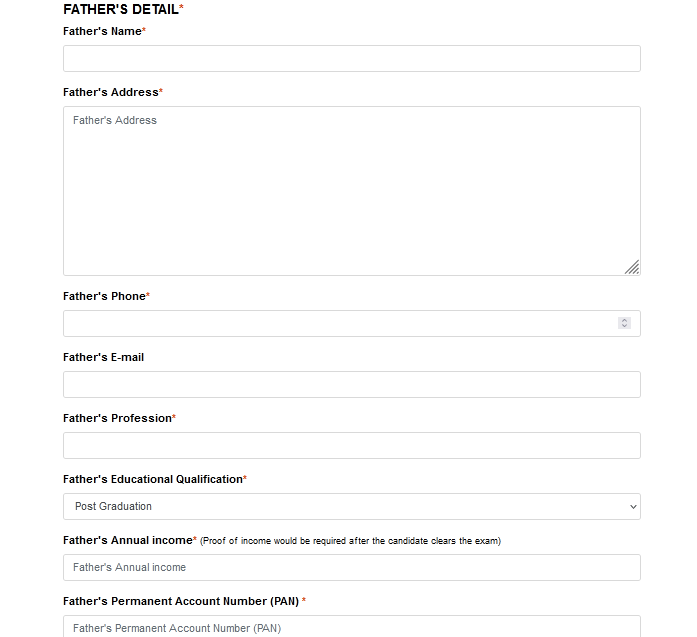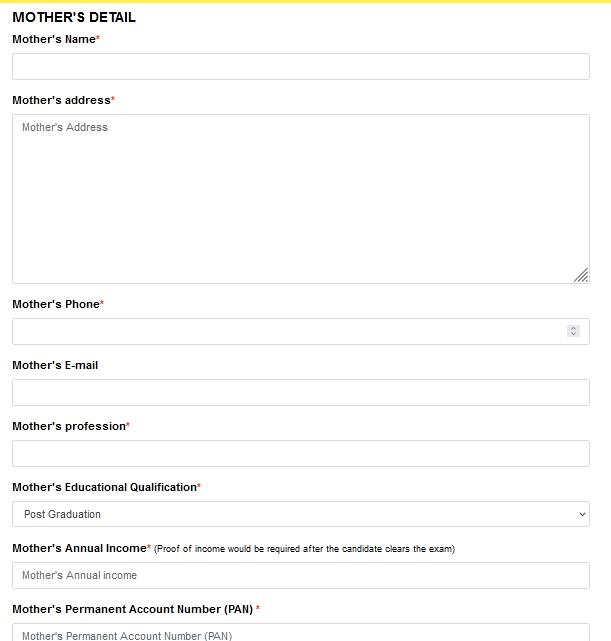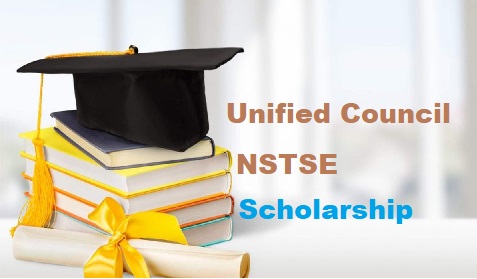The Doon School Scholarship Exam 2023: Download Application Form, Syllabus, Exam Date, Eligibility, How to Prepare?

The Doon School is one of the top and prestigious schools of India. It’s a residential school for male students only. You’d be happy to hear that the school has started conducting a scholarship exam named The Doon School scholarship exam 2023 to find exceptional boys from all backgrounds, who find it difficult to pay School fee.
There will be a screening test after qualifying which students have to appear for The Doon School Entrance Test followed by an interview. Students are offered admission only if they clear the final round.
Students who are meritorious but unable to pay school fee they will be provided 100% scholarship to study at The Doon School Dehradun. However, it will be decided by the school only after reviewing the merit and family background of students.
Read this article to know all about the Doon School scholarship exam 2023 regarding its application form, how to apply, eligibility criteria, exam date, how to prepare, exam pattern, and syllabus.
Latest: Students can now register for the Doon School Scholarship exam 2023.
The Doon School Scholarship Exam 2023 Overview
| Scholarship Test Name | The Doon School Scholarship Exam 2023 |
| Who conducts the exam? | The Doon School Dehradun |
| Purpose of exam | Students will be provided up to 100% scholarship to study at the Doon School Dehradun. The school fee for Indian students at the Doon School is around 10,25000/- per year. |
| Selection process | Three stages:
Stage 1- Screening test Stage 2: The Doon School Entrance Test (Written test) Stage 3: Interview Students who clear all three stages are only eligible to get admission. |
| Where to apply? | https://www.doonschool.com/dsse-registration-form/ |
| Official website | https://www.doonschool.com/dsse/ |
The Doon School Scholarship Exam 2023 Important Dates
| Availability of application form | Available |
| Last date to apply | To be notified |
| Date of screening test | 16th July 2023 |
| Date of The Doon School Admission Test | 1st October 2023 |
| Interview | To be notified |
The Doon School Scholarship Exam 2023 Application Form
You can apply for The Doon school scholarship exam 2023 either online at its official website or simply download the application form and fill it up with hand. We have shared the process below to apply for The Doon school scholarship exam 2023-24 in both online and offline mode.
How to fill form by hand?
Step 1: You need to download The Doon school scholarship exam application form.
Step 2: Fill all required details using pen.
Step 3: Scan or take a clear photograph of your duly-filled application form and Whatsapp it to the school at 91-730-243-9991 OR mail it to [email protected].
Step 4: Civilians are required to pay Rs.100/- online.
Step 5: In case you register online for the scholarship exam by the Doon school then share the payment receipt to +91-730-243-9991 upon registration.
How to fill application form online?
Following details will be required to enter online for a successful registration:
Personal information of student- first name, last name, date of birth, place of birth, mother tongue, present school (CLASS, SCHOOL NAME, ADDRESS AND TELEPHONE).
Father’s details- father’s name, father’s address, father’s phone, father’s email, father’s profession, father’s educational qualification, father’s annual income, father’s PAN number.
Mother’s details- mother’s name, mother’s address, mother’s phone, mother’s email, mother’s profession, mother’s educational qualification, mother’s annual income, mother’s PAN number.
The Doon School Scholarship Exam 2023 Pattern and Syllabus
Make a note there will three stages of selection and it includes:
Stage 1- Screening test
Stage 2: The Doon School Entrance Test (Written test)
Stage 3: Interview
Students who have cleared all three stages are only eligible to get admission into the the Doon school Dehradun.
1) Languages and Regional Contexts
Pattern: The descriptive questions paper will be of 100 marks and students will be provided 90 minutes of time to solve the question paper.
Syllabus:
Section I: Regional Language: 40 marks (duration- 30 minutes)
One Essay – Descriptive /Narrative / Argumentative
Section II: English: 60 marks, 1 hour of time
One Essay (30 marks)- (Region /Culture Specific /Environment /Identity)
One Comprehension (15 marks) -Passage based Questions.
Grammar (15 marks) – Synonyms, Antonyms, Prepositions, Conjunctions, Subject – Verb
Agreement etc (Class 6 standard)
Exemplar Questions
English Language Section
Q1. Write an essay on any one of the following topics: (word limit – 200 words); 30 marks
Imagine that you are visiting a foreign country and have been asked to describe where you come from. Write a short essay for potential visitors to your region/city.
Your response could include (but need not be restricted to) the following:-
- Geography and climate of the region
- History/Historical significance
- Food, culture, languages, dialects
- Demgraphic details, economy
- Any other special theme that you might wish to share
OR
The beauty of India is its diversity. It is indeed a melting pot of diverse religions, languages and cultures. However, like all countries, we too have our challenges. Write a short essay on a particular issue of your region/city/state that you think needs to be worked on/addressed.
Your response could include (but need not be restricted to) the following:-
- What sort of issue- economic, social, cultural, etc?
- Background to this issue- how did this develop? What could have been some of the reasons for its development?
- What impact does it have on your region?
- What could be some of the solutions for this issue?
- What impact would these solutions have on this issue?
Q2. Read the passage below and answer the questions:
PARA – 1
One of the hardest and most harmful things about school – not just Doon but any other boarding school – is that boys are deprived of the love and day-to-day company of their fathers and mothers for two-thirds of the year – and possibly for longer, because when they do go back home for the holidays, parents are often so unused to spending time with their children that they don’t quite know what to do with them even when they share the same roof. The boys, while growing up, hardly know what it is like to have a
sister. The result of this lack of family life, of affection, is very difficult to assess, but I think it has a serious effect on the minds and hearts of the boys. It forces them to be more independent of their parents, certainly, but it also makes them more emotionally insecure, and as a result more eager, even desperate, to conform to their peer group, to seek popularity among their companions, and to appear as tough and cool as possible and as brutal as possible to those who are outside the group or younger than themselves.
PARA -2
The sense of equality was something that Doon never laid any oppressive stress on, and it was more effective for that. It just happened. Boys dressed in same uniform regardless of their parents’ wealth. They got the same amount of pocket money. Caste did not matter, religion did not matter, the part of the country you came from did not matter, the social status of your family was unimportant. It was a considerable sacrifice for my parents to send me and my brother here, and it was even more difficult for other parents – but it did not matter to us
that the boy next to us might be the son of a millionaire. Nor did it matter to him. Our friendships and enmities had almost nothing to do with the world outside Chand Bagh. This was a wonderful lesson, and a rare one: one that could not have been taught in a day school. For though in a day school, we would have had the company and affection and example of our parents, we would also have absorbed their social prejudices, and after school hours we would have mixed largely with children of the same social background, locality, and economic class.
Source: Vikram Seth’s Founders Day speech 1992 – WEEKLY
- Based on para 1 state two things which are not good about a boarding school like Doon. (4 Marks)
- Based on para 2 state two things which you like about Doon. (4 Marks)
- What are some characteristics of Day Schools mentioned in the second para? (4 Marks)
- Based on both the paragraphs give three reasons why you would like to come to Doon
OR would not like to come to Doon School. (3 Marks)
Q3. Fill in the blanks with suitable prepositions (5 marks)
- The cat fell ——–the well.
- Distribute the books ——-the boys.
- We should abide ——the rules.
- The girl was standing ———the bus stop waiting for the bus to Lucknow.
- working hard, he could not get good marks.
Q4. Fill in the blanks with suitable verb forms of the words given in bracket (10 marks)
- The criminal ——-(attack) the boy with a blunt object.
- During Earthquake, the terrified residents ——-(flee) the apartment.
- The tax officer ——(freeze) all of his bank accounts.
- Joey usually ——-(sit) at the back of the classroom.
- Raghav ——(decide) to study abroad.
- We were ——-(wake up) by loud music in the middle of the night.
- It ——- ( rain ) since last night, and it looks as if it may rain for the rest of the day.
- Sharon has decided ——-(work) hard and improve her performance.
- They ——-(come) next week to visit our house.
- The brave boy ——–(swim) across the river to save his brother
2) Science
Assessment Structure: 40 marks, 40 minutes; Multiple Choice Questions and Very Short descriptive questions from the following syllabus
Syllabus:
A Biology & Environmental Sciences
Cell: Understanding of the cell as a functional and structural unit, size of cell,
Plant & Animal – Form and structure: To understand the basic structure and modification of forms- shoot and root in plants. To understand the basic structure of tissues and the form of various systems found in humans.
Health and hygiene: basic idea of health and hygiene pertaining to human beings.
Food & Nutrition in Plant and animal: To understand plant and animal as source of food, examples of edible parts of plant, components of food as carbohydrates, fat, protein, vitamins, and minerals- their rich sources, use in body, malnutrition, and tests. Understanding animal nutrition in general with specific reference to the human digestive system, its parts, functioning and role of enzymes. Understanding plant nutrition as photosynthesis, process, requirements, and outcome.
Life Processes – respiration, reproduction, and transportation (elementary idea) Basic idea of these processes, their types, and examples in general and organs or systems associated specifically in humans and plants where applicable.
Ecosystem & Adaptation: Basic idea of ecosystems and adaptations of animals in desert and water.
Natural Resources – Water, Air, Soil, Forest, Coal, and petroleum: Understanding the importance of each as a resource, their forms, availability, and utilisation.
Waste & Pollution: Understanding terms associated with waste and pollution, understanding waste generation, and taking care of it- incineration, landfill, composting etc., pollution of various types limited to soil, water and noise, their causes, and effects, finding solutions.
B) Chemistry:
States of matter: Concept about the three states of matter, application of particle theory to explain the properties associated with these states.
Elements, mixtures, and compounds: Classification of substances as pure and impure. Classification of pure substances as elements and compounds. Application of particle theory to classify substances as elements and compounds. Classification of elements as metals and nonmetals; their properties. Different types of mixtures and separation techniques.
Atoms, Molecules & Subatomic particles: Definition and concepts about atoms and molecules of elements and compounds. Name, symbol and formula of elements and compounds. Elementary idea about subatomic particles and structure of atoms.
Physical and Chemical changes; Chemical reactions: Differentiation between physical and chemical changes. Common types of chemical reactions. Reactants and Products. Word equation.
Water and Air: Water as a compound, sources, uses, properties. Water pollution. Purification of water. Composition of air, air as a mixture, air pollution, greenhouse effect, global warming, acid rain.
C) Physics
Measurements: This topic is about units, instruments, and measurement techniques. Motion, Force & Energy: This topic is about various types of motion of a body, its speed, velocity, distance travelled, acceleration, force, its definition, effects, energy, types of energy etc.
Light & Sound: This topic will be based on the understanding of light and sound as waves, its properties, ray diagrams, reflection and refraction, mirrors, speed, audible range, musical instruments etc.
Heat: This topic will be about heat as energy, temperature, its measurement, transfer of heat, effect on climate due to heat etc.
Electricity & Magnetism: This topic is about electric charge, electric current, electric energy, household appliances, magnets, its properties, and behaviour etc.
Astronomy: The topic will include the sky, stars, constellations, planets, asteroids, comets etc. Elementary ideas about ancient Indian astronomy will also be a part of this topic.
3) Mathematics:
Assessment Structure: 35 marks, 35 minutes; Multiple Choice Questions and Very Short descriptive questions from the following syllabus.
Syllabus:
Number sense & computational skills Integers – concepts & applications Factors and Multiples
Fractions, decimals & ratios Geometry
Mensuration – area, perimeter & volume Algebra – concepts & applications Application in daily life/visual problems Measurement & data interpretation Graphical & shading skills
Open Problem solving – advanced & challenging
4) Reasoning and Personal Skills
Assessment Structure: 25 marks, 45 minutes; A mix of comprehensive and interpretational questions
Syllabus:
Section I:
This is dedicated to gauge Socio-Emotional Skills and Competency. Questions will be objective type and will be about their intra-personal and inter-personal skills, thoughts, and behaviour. This section does not require any preliminary preparation but would expect completely honest responses from the student.
Section II:
This will be sub divided into two parts mentioned below –
Verbal Reasoning — This will gauge student’s verbal comprehension, logic, and reasoning all through student’s understanding of language. It will be an assessment of student’s ability to think, reason and solve problems. This may include analogies and
Section III:
This will consist of Situation Reaction Test. These will be designed to gauge the student’s decision making, sense of ethics, empathy, and readiness to be in a boarding school. This does not require any preliminary preparation but expects honest responses from students.
DSSE-Syllabus pdfFrequently Asked Questions
Now available.
Yes you can apply in both online as well as offline mode.
It will be based on merit- the school may take in 20, 30 or even 40 for the main entrance test.
Genuinely, there is no preparation required. However, it is suggested to student to follow some basic verbal and non-verbal reasoning questions (you’ll find it in some reasoning olympiad books meant for grade 7 students).
The paper will comprise of questions and responses based on diagrams, images, and texts provided in the paper. Students will be also tested in terms of their skills of making scientific diagrams.







